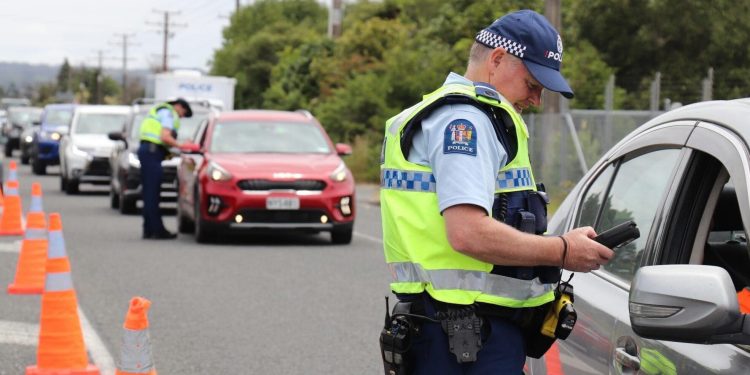Police crack down on drug impaired drivers
Words: Harrison Wade | Photo: New Zealand Police
The New Zealand Police are cracking down on drug-impaired drivers after recently introducing new infringements and tougher penalties as part of the new Land Transport (Drug Driving) Amendment Act.
Additional enforcement measures and penalties were introduced on 11 March 2023 which include compulsory impairment tests (CIT) to identify drivers using drugs.
If a driver fails a CIT, they would be required to give an evidential blood test for analysis which can determine what enforcement action is deemed appropriate for the offence.
The Police say the goal of the legislation is to detect and deter drug-driving that potentially impacts the safety of everyone on our roads.
According to data collected from fatal crashes, the presence of drugs in driver’s blood is now generally about equal to alcohol which is said to have doubled since 2015.
Approximately 93 people were killed in crashes in 2021 by drug impaired drivers, amounting to nearly a third of all fatalities that year.
Key changes in the new Land Transport (Drug Driving) Amendment Act include:
- Introduction of Schedule 5 to the Act with 25 listed qualifying drugs that have the highest risk of impairing the ability to drive safely
- New enforcement levels (or limits) with a lower (threshold) and higher (high-risk) level for each listed qualifying drug in Schedule 5
- The blood test analysis will now confirm either the presence or level of a qualifying drug
- Introduction of infringement level offences for drivers between the threshold and high-risk levels
- Tougher penalties for driving after consuming qualifying drugs, mixing with other qualifying drugs, and/or alcohol
- 82 new offences.





